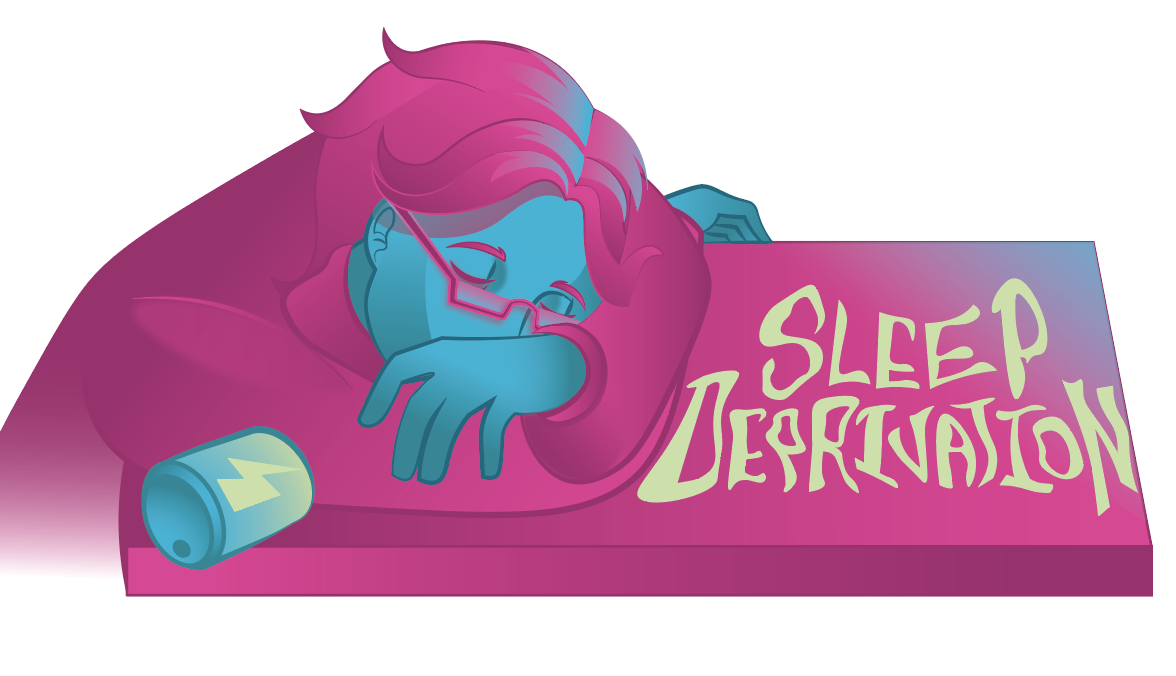Statehouse to Schoolhouse
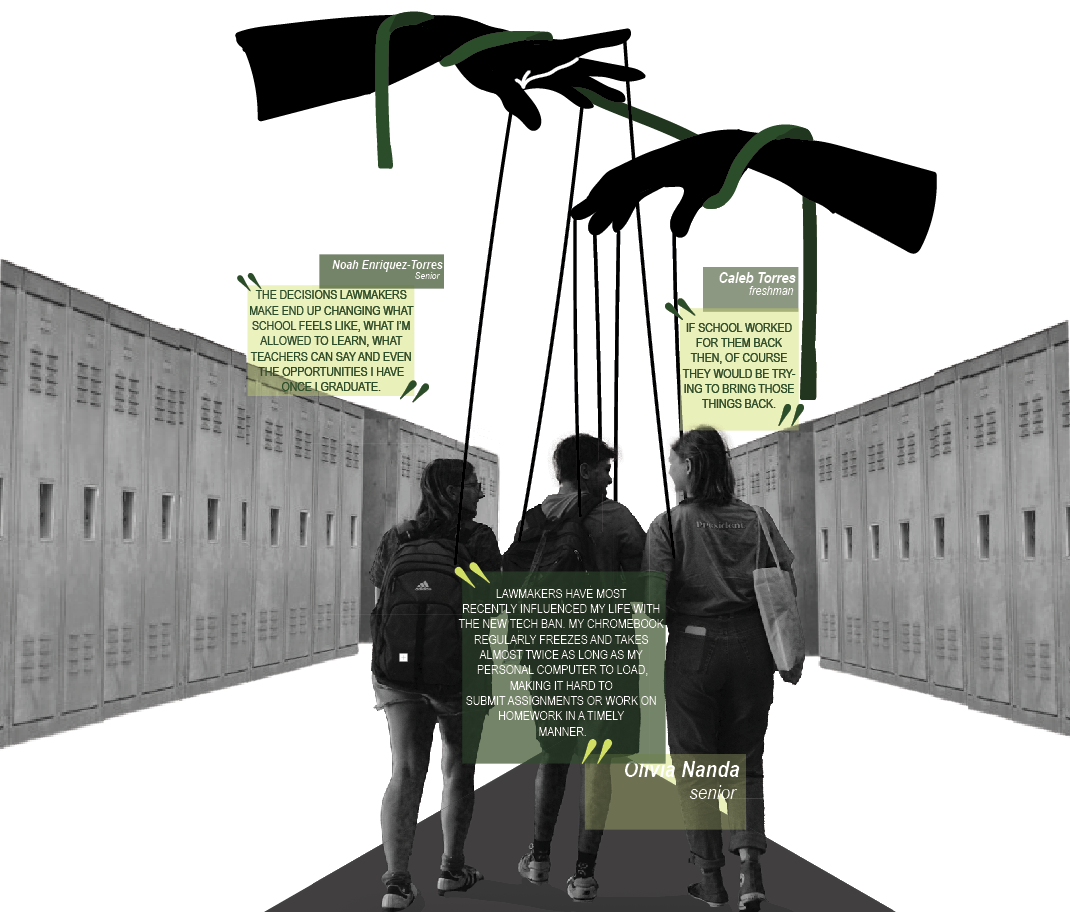
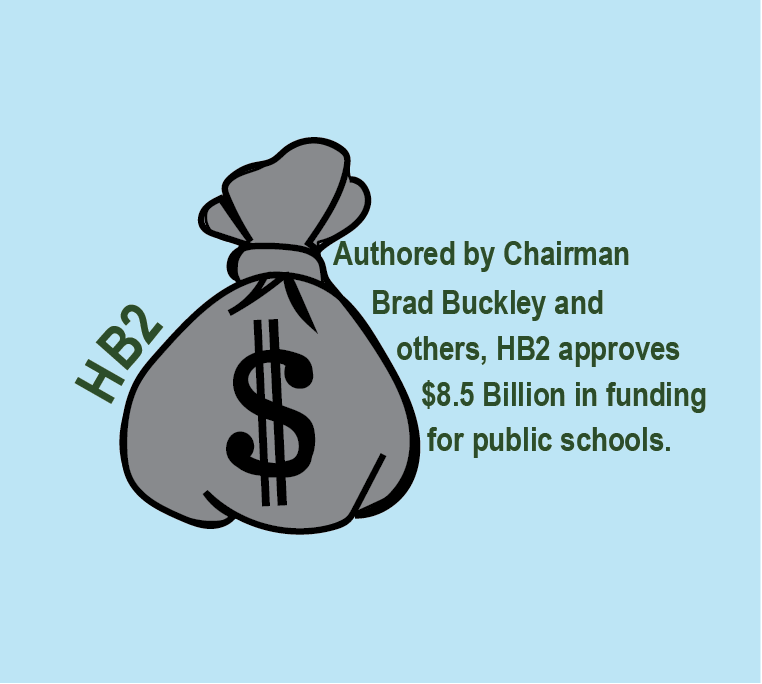
With a few glides of pen across a paper, ripples were felt from the Texas Capital all the way to Bowie High School. When senior Emily LeJeune, along with nearly 3,000 fellow students, tucked her powered down cell phone into her bag, she braced herself for the changes her school would experience at the hands of Texas Lawmakers.
During this year’s 89th Legislative session, a number of new bills concerning education were signed into law for the 25-26 school year. The bills from this session covered topics ranging from school funding to STAAR test changes to library content restriction and more.
“One of the biggest challenges is just trying to figure out what all of the new legislation means,” Principal Mark Robinson said. “There were over 100 bills that were passed this summer that pertain to education, and obviously, as a public education system, we are at the mercy of the legislature in terms of, not only for funding, but also organization, what’s allowed, what’s not allowed. So, I think the biggest challenge so far has just been figuring out what it all means, what applies, and what doesn’t.”
When a bill concerning changes of the educational environment is passed, its text will include immediate instructions for school districts in what rules or procedures districts are required to implement. However, the bill often leaves responsibilities up to the district in writing specified rules for the schools within it to follow.
“A lot of the things that are either legislative requirements at the state level or the federal level, I think about those things in the way that I think about a lot of the regulations that we have just at the local level,” Robinson said. “The way that our school board chooses to prioritize our values or initiatives, there’s a major focus on compliance. I know, for me as a public school administrator, a lot of my efforts are into making sure that there are systems in place that keep us in compliance and keep us meeting those mandates. So, I think that a lot of my focus is on how we can put things in place that make it easy for the students, the teachers and the staff in that system to be able to comply to satisfy those mandates.”
With the over 100 education-related bills passed this recent session, Bowie students’ first few weeks included additional advisory sessions detailing the new mandates for this school year. Each week following, teachers continuously informed students of updated requirements.
“I would probably say that our legislators are doing the right thing,” freshman Caleb Torres said. “If school worked for them back then, then of course, they would be trying to bring those things back. If they had a good education, then of course they’d be trying to instill that into us, the younger generation. So, I definitely say that they are in the right direction.”
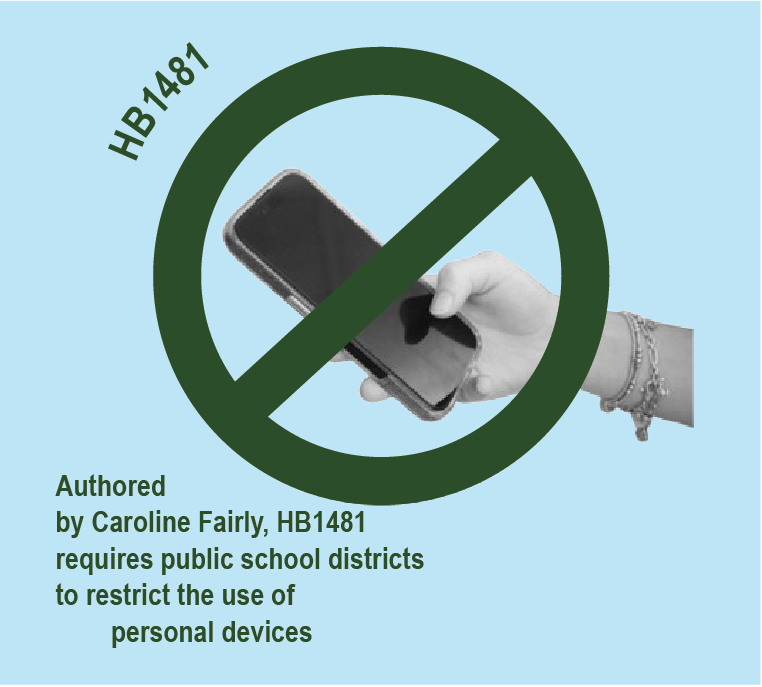
This year at Bowie, students returned to school with free hands. House Bill 1481, which prevents students from using personal devices on school grounds from the first to final bell, was passed during the most recent session. On August 21, the AISD Board of Trustees met to discuss proper disciplinary action, and ultimately decided that students’ phones would be confiscated at first offense, with an additional requirement for parental involvement on the second.
“If you had asked parents, students, teachers, or legislators before that bill was passed, they would have predicted that they would have had some challenges on implementation,” Robinson said. “However, from what we’ve seen at Bowie, students have been able to adapt their behavior pretty easily, although I know that it’s probably not at the level of the intention of the legislation. In the legislation, they want phones to be inaccessible to students, and the closest we’ve been able to get at Bowie is just out of sight.”
Before the passing of HB1481, a number of students relied on personal technology to complete assignments and participate in class activities. For example, a teacher may have instructed students to pull out their phones and use a ‘scan document’ feature to submit work done on paper during class time. With new guidelines, teachers and students have had to make adjustments to familiar classroom procedures.
“Taking away phones, it’s not gonna make kids behave better, it’s just gonna make them rebel more,” Torres said. “If you’re catching more phones with the new law, then you were whenever you didn’t have the law, then it’s like don’t fix something if it’s not broken. If kids having their phones was working fine last year, then why would you change it?”
Although the official HB1481 bill text does not explicitly address the use of Bluetooth or wireless headphones, AISD has the ability to form district policy based on their interpretation of the bill text. Inferring that wireless headphones would most likely involve the use of personal devices, AISD’s policy specifies that use of any wireless headphones is not permitted during school hours.
“Whenever I get overwhelmed or need something to help me focus, I put on my headphones and pull up my favorite playlists,” LeJeune said. “Now I don’t really have that option with the Bluetooth headphone ban, along with Spotify getting blocked on Chromebooks. I think it’s kind of sad that people like me that may not have that explicit accommodation and can’t access something that might actually be a useful tool for our spare time.”
HB1481 acts as a guideline for the implementation of the tech ban that is ultimately in the hands of the individual school district. According to the AISD website the bill’s purpose is to “boost student focus, reduce distractions, and lower online bullying risks,” and it is the district’s responsibility to create instructions of implementation that serve the bill’s purpose most adequately.
“School is so different now,” LeJeune said. “I mean, a lot of legislators aren’t really super old, but they were a different generation. They didn’t have devices. They didn’t have all these new, more diverse, classes. They didn’t have all the access to materials that we have now. School looks a whole lot different. And unless you have somebody that’s in that perspective and seeing what it’s like, it’s going to be difficult to explain verbally or try to physically understand.”
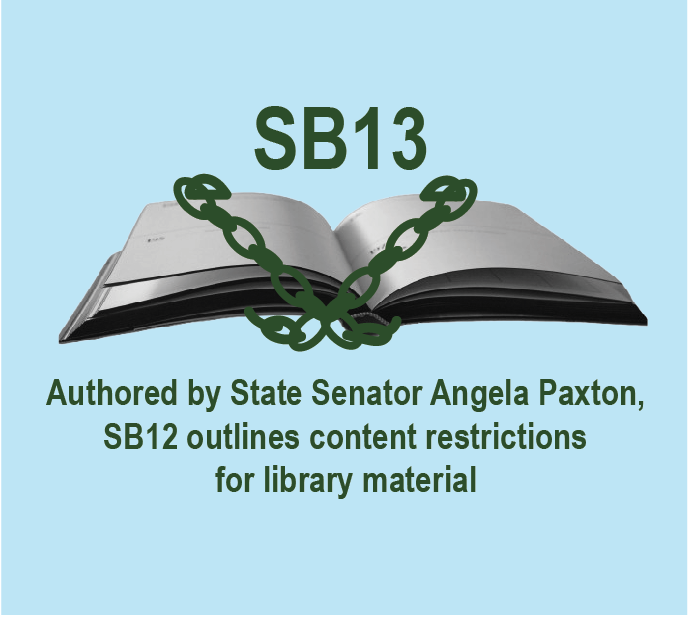
Another bill bringing significant changes to AISD campuses is Senate Bill 12, which includes the requirement that all public schools are no longer to permit any discussion, training, or staff involvement with programs relating to diversity, equity, or inclusion. In addition, the bill has declared that teachers and administrators must call students by their government name, regardless of the student’s preference in accordance with their identity.
“Another bill that came into law was Senate Bill 12,” Robinson said. “It’s about parental consent for health, physical health, mental health and social activity or clubs, specifically, that parents had to consent in order to receive services in any of those areas. The district supported principals by drafting some language or giving us some forms to work with that we could turn around to our community to be able to collect that feedback so that then we can move forward with those decisions.”
Senate Bill 13 is another example of a bill updated this most recent year that involves parent consent of their student’s educational choices. SB13 covers new requirements for Librarians acquiring new books, including that they must be approved by a council, or a ‘School Library Advisory Committee,’ (SLAC) made up of mostly parents.
“It’s against the First Amendment,” Librarian Tara Walker-Leon said. “If a student wants to read something, they should be able to read it. I don’t have anything here in the library that is questionable in my mind, but that’s where the ethics kind of gets confused. Let’s say, for example, a high school student is gay or struggling with mental health or experiencing racial injustice and they’re reading about this in a specific book, but their parent does not want them to read about those topics, then the parent can go in and deny their kid from reading this book.”
Additionally, the latest SB13 bill text states that any library content that the SLAC council deems to contain ‘Harmful Material’ will be removed from shelves immediately. Under the Texas Penal Code section 43.24 ‘Harmful Material’ is defined as ‘appealing to the prurient interest of a minor, in sex, nudity, or excretion,’ ‘offensive to prevailing standards’ of what is ‘suitable in the adult community to minors,’ or not redeeming ‘social values for minors.’
“To not give people that information to decide for themselves, really, that’s what the whole thing is about,” Walker said. “Librarians have this thing called mirrors and windows. Maybe you read a book, you see yourself in that book. That’s a mirror. Maybe you read a book and you see someone else’s perspective, that’s a window. So no, we’re not forcing anybody to read anything. That’s what’s great about the library, you just read what you want to read. You don’t have to read the rest. The problem is that people are making those decisions for other people.”
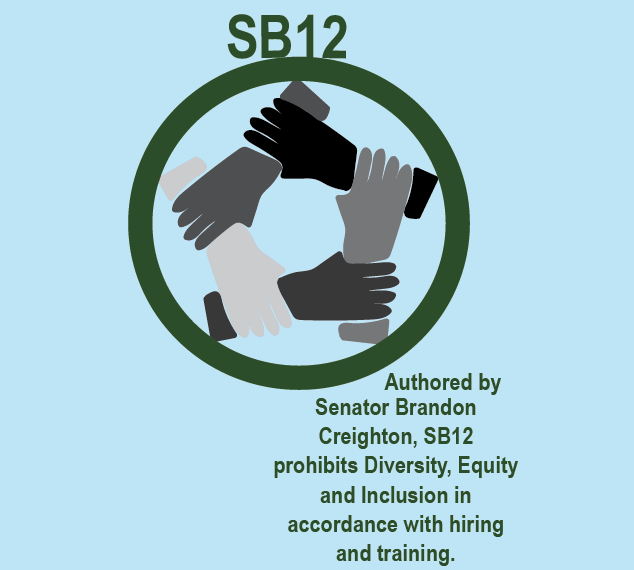
When legislators draft a bill, it goes through a series of revisions with the ultimate goal of gaining a majority vote in both the House and Senate. Throughout these revisions, legislators have the opportunity to ensure that the bill serves its purpose both directly and efficiently.
“SB12, the way they’re doing this is, there’s a 10-digit and a 13-digit number for each book,” Walker said. “If this number is not in the catalog, not in the library, you can’t have one. That tells me, right there, they didn’t even know, like, it can be the same book, it’s the exact same book, but one is hardback, and one is a soft cover. It’s a different number. It makes no sense and they didn’t even know that.”
Anyone under the district has the right to voice their opinions and inform legislators throughout the entire process of a bill’s passing, from its first draft to the first vote to the bill being signed into law.
“A lot of the legislators do not have a background in education, like there’s only really one or two that come to mind that I have heard them say ‘I was a teacher,’ or ‘I worked in schools,’ or I ‘have an education degree,’” Robinson said. “That means that we have a lot of responsibility to inform the discussion and inform the decision making, because those decisions that are being made are going to impact us, and when the people in the room don’t have that knowledge from their own background or experience, then we have to provide that guidance.”
Official district policy relating to new legislation is ultimately in the hands of the nine members of the Austin Independent School District Board of Trustees. On AISD’s website, information can be found detailing the board’s monthly information sessions, where they lend the floor to public comment. Testimonies can be made in person, or through a pre-recorded video.
“There are often not enough voices for the little guys, the economically disadvantaged and lower performing schools in our district,” LeJeune said. “I believe that we should have admin, teachers, and students from lower income schools have a voice in legislation as well, because at the core of it all, this is about educating future leaders of the country.”
Additionally, students, parents, and staff have a number of options when it comes to voicing their opinions to their lawmakers. Through Texas Legislature Online, they can schedule a short in-person meeting with the lawmaker who represents their district. For a less direct approach, one can write a letter or email to their lawmaker using the official format found on the Legislative Reference Library of Texas’ website.
“At the moment, the most students can do is speak out, spread the word, protest and petition,” LeJeune said. “Until we can get someone on our level who knows what school looks like with the policies actually in the classroom, it’s a bit difficult to have legislators understand why we speak out.”
Your donation will support the student journalists of James Bowie High School. Your contribution will help cover our annual website hosting costs. Any contributions made through this service are NOT tax deductible. If you would like to make a tax deductible donation OR to subscribe to our print edition, please contact us at [email protected].





